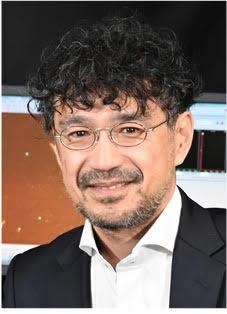In a global first, scientists have demonstrated that molecular robots are able to accomplish cargo delivery by employing a strategy of swarming, achieving a transport efficiency five times greater than that of single robots.
This video looks at the work by a team of researchers, led by Dr. Mousumi Akter and Associate Professor Akira Kakugo from the Faculty of Science at Hokkaido University, that has succeeded in developing the world's first working micro-sized machines utilizing the advantages of swarming. The findings were published in the journal Science Robotics.
See below for video with Japanese subtitles or no subtitles.
See the press release on our newsroom Molecular robots work cooperatively in swarms
About the researchers

Dr. Mousumi Akter received her Ph.D. from the Graduate School of Chemical Sciences and Engineering, Hokkaido University, Japan, in 2020, under the supervision of Prof. Akira Kakugo as a MEXT scholar. She continued working with Prof. Kakugo as a postdoctoral researcher at Hokkaido University with the support of New Energy and Industrial Technology Development Organization (NEDO), Japan. Currently, she is working as a postdoctoral scholar in the Institute of Molecular Biology, University of Oregon, United States, under the investigation of Prof. Brad Nolen since February 2022. Her research interests include understanding the dynamics of active matters, self-assembly of the cytoskeleton and their molecular regulation, development of molecular robotics and so on.

Dr. Akira Kakugo is an Associate Professor at the Department of Chemistry of Hokkaido University. He obtained his bachelor’s degree in Fisheries Science and master’s degree in Polymer Science from Hokkaido University in 1998 and 2000, respectively. Later he obtained his Doctor of Science from Hokkaido University in 2003. His latest research interests revolve around active matters. Particularly he is highly motivated in studying the swarming of active matters, responsiveness of active matters, and swarms to various stimuli, which are the key to unraveling the underlying mechanism behind the group behavior of living organisms. His research interests also include the fabrication of molecular robots and artificial muscles from active matters
The team also included Assistant Professor Daisuke Inoue, Kyushu University; Professor Henry Hess, Columbia University; Professor Hiroyuki Asanuma, Nagoya University; and Professor Akinori Kuzuya, Kansai University.
Website: Molecular robots work cooperatively in swarms
Original Article:
Mousumi Akter, et al. Cooperative cargo transportation by a swarm of molecular machines. Science Robotics. April 20, 2022.
DOI: 10.1126/scirobotics.abm0677
See the video with Japanese subtitles or with no subtitles below.
Want to see your research in motion? - Check out Asia Research News videos here

